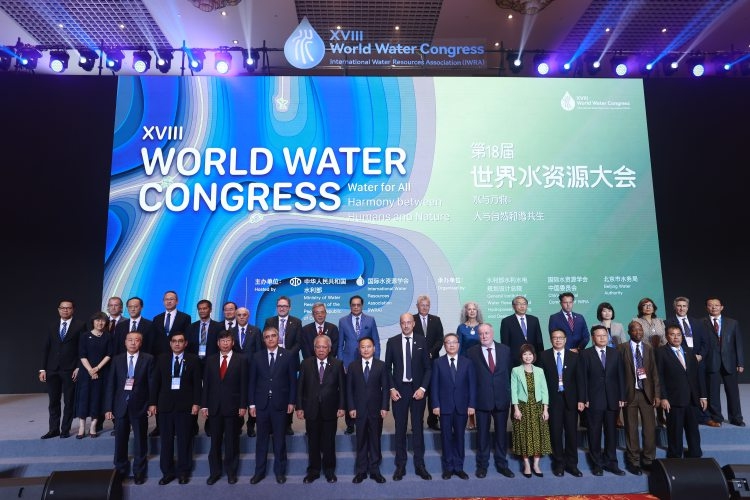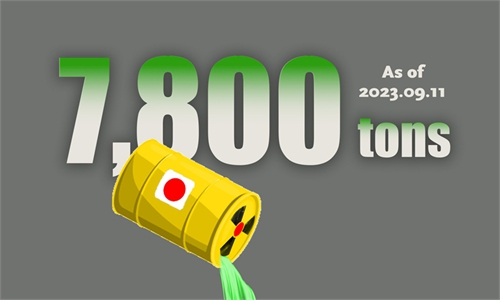China gathers global wisdom in water governance at World Water Congress while Japan threatens global marine ecology

Group photo of invited guests at the 18th World Water Congress on September 11, 2023 in Beijing. Photo: Courtesy of congress committee
While the Japanese government is determined to threaten the global marine ecology by dumping its nuclear-contaminated water into the ocean, China is consolidating international consensus on scientific water management via the ongoing 18th World Water Congress in Beijing to help more people in other countries access safe water resources.
At the congress opened on Monday, global representatives called for common ground on solutions on water problems and also said they expect China to contribute more experience and wisdom in addressing water issues to meet unprecedented ubiquitous challenges.
China, with only 6 percent of the world's freshwater resources but ensuring water supply for nearly 20 percent of the global population, has made significant progress in achieving the water-related goals of the UN's 2030 Agenda for Sustainable Development. China is open to share its water management wisdom and solutions during the week-long conference and work together with countries around the world to address the challenges brought by aggravated global climate change.
Due to the extremely uneven distribution of water resources and frequent water and drought disasters, China is a country with one of the most complex water situations and the greatest difficulty in river management in the world. However, the past decades have witnessed a great improvement in China's flood control systems and smart infrastructure, said Vice Minister of Water Resources Liu Weiping at a press conference before the congress.
Take the Mekong River basin as an example. Researchers have found out that well-operated reservoirs run by China in the upper Mekong River, also known as the Lancang River, which store water in wet seasons and release water in dry seasons, helped with drought relief in the basin as a whole. Additionally, since 2020, China has been sharing hydrological information about the upper Mekong River with downstream countries year-round.
More, according to media reports, China leads the world in having the most international wetland cities, being home to 13 among all 43 cities globally. With 4 percent of the world's wetlands, China meets the ecological, production, living and cultural needs of one-fifth of the world's population.
Liu introduced at the congress on Monday that with the rapid growth of the world population and economic and social development, coupled with the intensified global climate change, the world is facing more severe common water security issues. Around 10 percent of the global population lives in countries with high or severe water shortages, while 26 percent of the population unable to access safe drinking water.
"Today, we are holding the congress to deepen international exchanges, share water management experiences and achievements, and systematically solve prominent water security issues worldwide," said Liu.
International Scientific Committee's Co-Chairs Renée Martin-Nagle and Shi Qiuchi said at the congress that they encourage and expect more interdisciplinary communication, more scientific and technical dialogues, and more meaningful consensus and collaborations during the week.
"We hope that our guests will take this opportunity to learn more about Chinese history, culture and experiences in water management."
This is the first time that the World Water Congress has been held in China. The congress takes the theme "Water for all: Harmony between humans and nature," and has six sub-themes focusing on the nexus between water resources, population, economy, and ecology. It also seeks to promote sustainable and intelligent water infrastructure development.
The congress will release the important outcome document, the "Beijing Declaration," presenting and sharing the congress consensus and initiatives, including China's successful experiences, with the world.


